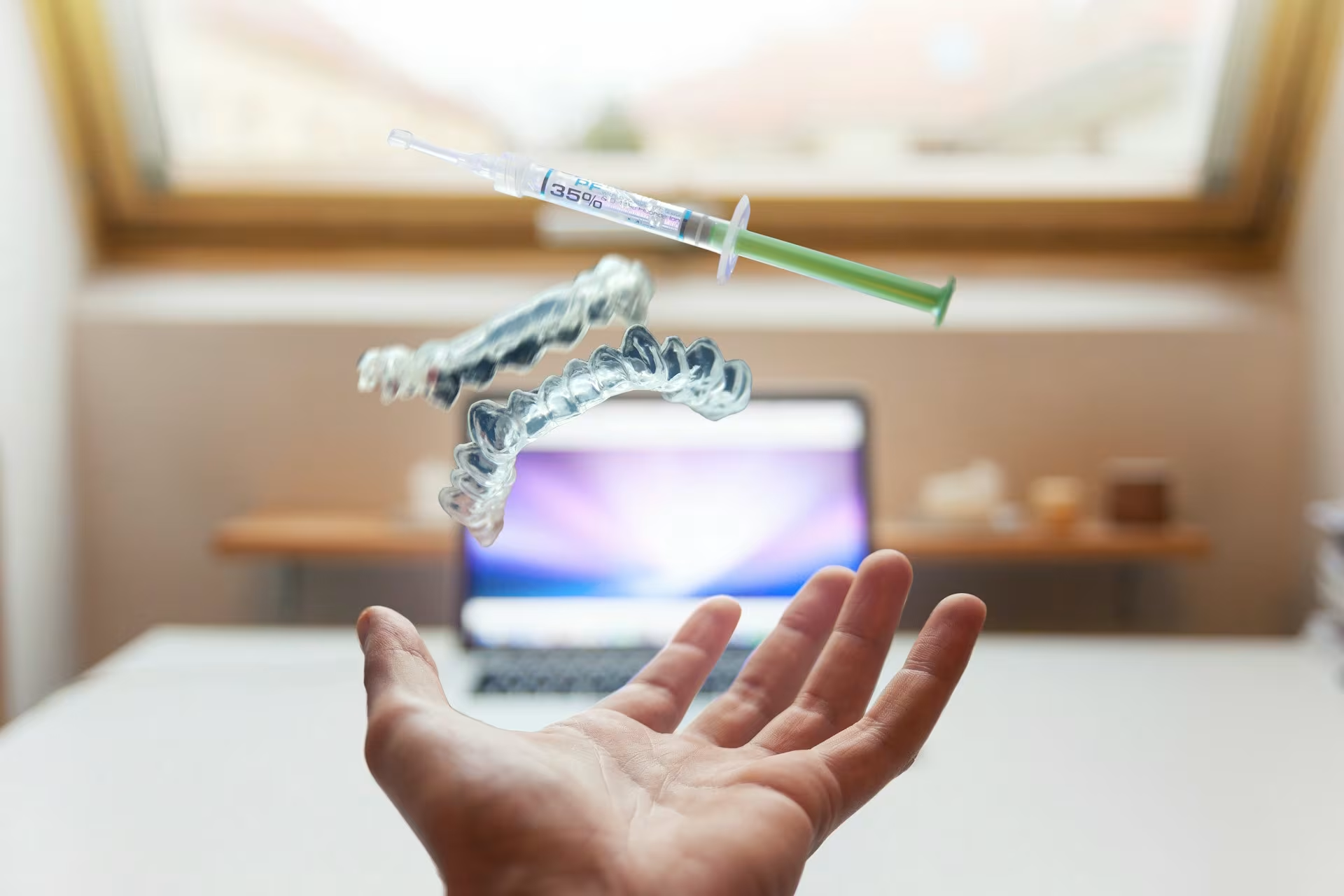Making decisions about dental surgery can be overwhelming, especially when faced with numerous options for dental surgeons in Singapore.
Many patients struggle with understanding when they need a dental surgeon rather than a general dentist, and what procedures require specialized surgical care.
This comprehensive guide aims to clarify the role of dental surgeons in Singapore, help you understand when you need their specialized services, outline common dental surgical procedures and their costs, and provide guidance on selecting the right professional for your needs.
Understanding Dental Surgeons vs. General Dentists
What is a Dental Surgeon?
Dental surgeons and dentists are both healthcare professionals focused on oral health. The terms are sometimes used interchangeably, as both are qualified to diagnose and treat oral health conditions. However, there are important distinctions in their training and expertise.
A dental surgeon typically has:
- Completed a basic bachelor’s degree (Bachelor of Dental Surgery)
- Pursued additional advanced training (2-4 years) such as a Masters of Dental Surgery (MDS)
- Registered with the Singapore Dental Council as a dental specialist
Core Responsibilities of Dental Professionals
Both dentists and dental surgeons share these core responsibilities:
- Diagnosing oral diseases and conditions
- Creating treatment plans to maintain or restore oral health
- Promoting preventive oral care and providing patient education
- Interpreting diagnostic tests and x-rays
- Administering anesthetics and ensuring patient safety
- Monitoring dental development
- Performing procedures on teeth and surrounding tissues
When Do You Need a Dental Surgeon?
While general dentists can handle many dental procedures, dental surgeons offer specialized expertise for more complex cases. Your dentist may refer you to a dental surgeon when:
- Your case requires complex surgical intervention
- You need deeper levels of sedation (general anesthesia)
- The procedure requires specialized training beyond general dentistry
- You have complex medical needs that require advanced care
Common Dental Surgical Procedures
Dental Implants
Dental implants are titanium posts surgically placed into the jawbone to replace missing tooth roots. They serve as anchors for artificial teeth (crowns).
Why Choose Implants:
- Provide a permanent solution for missing teeth
- Help maintain jawbone structure
- Function like natural teeth
- Can last a lifetime with proper care
While general dentists can technically perform implant surgery, many refer patients to dental surgeons who have extensive training in this procedure.
Dental surgeons are typically more experienced with the complex planning and surgical techniques required for successful implant placement.
Genetic Factors to Consider: Some patients have genetic predispositions that affect dental health, including tooth decay susceptibility, which might influence implant success. If there’s a history of dental issues in your family, more frequent dental check-ups may be beneficial.
Orthodontic Treatment for Malocclusion
Malocclusion refers to alignment problems with the bite (how upper and lower teeth fit together). Ideally, your upper teeth should fit slightly over your lower teeth, with all teeth properly aligned.
Common Bite Problems:
- Differences in jaw size
- Misaligned jaws
- Crowded teeth
- Extra or missing teeth
Orthodontists (a type of dental surgeon) specialize in diagnosing and treating malocclusion, which is the most common reason for braces or orthodontic treatment (eg Invisalign). Treatment options include traditional braces, clear aligners, and sometimes surgical intervention for severe cases.
Wisdom Teeth Extraction
Wisdom teeth (third molars) typically emerge in late teens or early twenties. While some wisdom teeth cause no problems, others may:
- Become impacted (trapped beneath gum or bone)
- Grow at abnormal angles
- Cause pain, infection, or damage to adjacent teeth
- Lead to overcrowding
Both dentists and oral surgeons can extract wisdom teeth. However, an oral and maxillofacial surgeon is often recommended for:
- Complex cases with impacted teeth
- Patients who prefer deeper sedation
- Extractions requiring specialized surgical techniques
The key difference is the level of anesthesia available: dentists typically offer local anesthesia (numbing the area), while dental surgeons can provide general anesthesia (putting you completely to sleep).
Clear Aligners (Invisible Braces)
Clear aligners are removable orthodontic devices that gradually straighten teeth. Each set is typically worn for 1-3 weeks for approximately 22 hours daily, removed only when eating or cleaning.
This treatment has become increasingly popular in Singapore as an alternative to traditional metal braces, particularly for adults seeking a less visible orthodontic option.
Current Dental Trends in Singapore
Rising Popularity of Teeth Alignment
There has been a significant increase in Singaporeans seeking teeth straightening treatments through braces and clear aligners. This trend is driven by both aesthetic concerns and health benefits, as aligned teeth:
- Make oral hygiene easier
- Help eliminate harmful bacteria along the gum line
- Lower the risk of developing gum disease
- Reduce the risk of tooth loss from weakened gums
Caution Regarding Teeth Whitening
While teeth whitening has gained popularity through social media, patients should be cautious about some products. UV whitening treatments using gels with potent chemicals can cause:
- Chemical burns if the gel contacts gums
- Soft tissue or gum irritation
- Gum recession over time
- Potential bone or tooth loss in severe cases
It’s important to note that once gum recession occurs, the gums will not grow back, making professional advice crucial before pursuing whitening treatments.
Cost of Dental Surgical Procedures in Singapore
Dental surgical procedures vary significantly in cost. The following table provides estimated costs at public institutions in Singapore:
| Procedure | Average Cost (SGD) |
|---|---|
| Wisdom Tooth Removal (impacted) | $381-$998 |
| Root Canal Treatment | $294-$949 |
| Implant with Crown | $3,800-$5,700 |
| Dental Crown (capping) | $750-$1,284 |
Medisave Coverage for Dental Procedures
You can claim from your Medisave for surgical dental procedures based on the complexity of the surgery:
| Table of Operations | Medisave Limits (SGD) |
|---|---|
| 1A / 1B / 1C | $250 / $350 / $450 |
| 2A / 2B / 2C | $600 / $750 / $950 |
| 3A / 3B / 3C | $1,250 / $1,550 / $1,850 |
| 4A / 4B / 4C | $2,150 / $2,600 / $2,850 |
Important note: You cannot claim from Medisave if your treatments do not involve surgery.
Choosing the Right Dental Surgeon in Singapore
Seek Professional Recommendations
Your general dentist is often the best source for referrals to dental surgeons. They understand your specific dental condition and can recommend specialists who excel in treating your particular issue.
Evaluate Experience and Expertise
While education and training are fundamental, experience is equally important. Consider:
- How many similar procedures the surgeon has performed
- Their success rates with your specific treatment
- Patient testimonials and reviews
- Their communication style and ability to explain procedures clearly
Check Practical Considerations
Before finalizing your choice:
- Verify whether the surgeon accepts your dental or medical insurance
- Understand the financing options available
- Consider the location and accessibility of their practice
- Evaluate their availability for appointments and follow-ups
Preventive Tips from Dental Surgeons
The Importance of Flossing
Many patients brush regularly but skip flossing, which is a critical oversight. Flossing:
- Removes plaque buildup between teeth and along the gum line
- Reaches areas that brushing alone cannot access
- Prevents cavities, tooth decay, and gum disease
Limitations of Mouthwash
While mouthwash can kill germs and freshen breath, it should not replace proper brushing and flossing because it:
- Cannot physically remove plaque between teeth
- Primarily addresses bad breath rather than deeper oral health issues
- Is insufficient for preventing gum disease when used alone
FAQ about Dental Surgeons in Singapore
What qualifications should a dental surgeon in Singapore have?
Dental surgeons in Singapore should possess a Bachelor of Dental Surgery degree and be registered with the Singapore Dental Council. Specialists will have additional qualifications such as a Masters of Dental Surgery (MDS) or equivalent and undergone 2-4 years of specialized training in their field.
How do I know if I need a dental surgeon rather than a general dentist?
You may need a dental surgeon if:
- Your dentist has referred you to one for a complex procedure
- You require surgery with general anesthesia
- You have impacted wisdom teeth or complex orthodontic issues
- You need specialized treatments like implants or reconstructive surgery
- You have medical complications that make dental procedures riskier
Are dental surgical procedures in Singapore covered by insurance?
Many dental insurance plans cover surgical procedures, though coverage varies by provider and plan. Additionally, Singaporeans can use Medisave for surgical dental procedures, with claim limits ranging from $250 to $2,850 depending on the procedure’s complexity.
How long is the recovery period after dental surgery?
Recovery time varies by procedure:
- Wisdom tooth extraction: 3-7 days for initial recovery, 1-2 weeks for complete healing
- Dental implants: 24-48 hours for initial recovery, 3-6 months for osseointegration (fusion with jawbone)
- Orthodontic adjustments: 1-3 days of discomfort
- Root canal: 1-2 days of sensitivity
What are the seven types of dental specialties recognized in Singapore?
The seven recognized dental specialties in Singapore are:
- Oral and Maxillofacial Surgery
- Orthodontics
- Prosthodontics
- Endodontics
- Periodontics
- Pediatric Dentistry
- Dental Public Health
What should I do to prepare for dental surgery?
To prepare for dental surgery:
- Follow all pre-operative instructions from your surgeon
- Arrange for someone to accompany you if sedation will be used
- Avoid eating or drinking as advised before surgery
- Inform your surgeon about all medications and supplements you take
- Discuss any anxiety concerns with your surgeon beforehand
How can I maintain good oral health between dental visits?
For optimal oral health:
- Brush teeth twice daily with fluoride toothpaste
- Floss daily to clean between teeth
- Use an antiseptic mouthwash
- Maintain a balanced diet low in sugary foods and drinks
- Avoid tobacco products
- Schedule regular dental check-ups every six months
Conclusion
When facing dental issues that require specialized care, dental surgeons in Singapore provide advanced expertise and treatments beyond what general dentists may offer. Understanding the difference between these professionals, knowing when to seek specialized care, and being informed about costs and procedures empowers you to make the best decisions for your oral health.
All dental surgeons in Singapore are trained to high standards and registered with the Singapore Dental Council, ensuring quality care. Your journey to finding the right dental surgeon should focus on their specific expertise in your required procedure, their experience level, and practical considerations like insurance coverage and accessibility.
Remember that good oral health begins with preventive care, including proper brushing, flossing, and regular check-ups, which can minimize the need for surgical interventions in the future.

